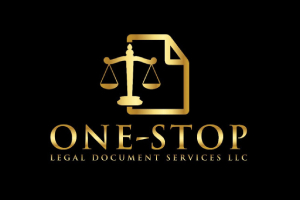Unveiling the Legal Framework of Business: Crafting a Solid Foundation for Success
Introduction:
In the realm of commerce, where visions are transformed into reality, the importance of establishing a robust legal foundation for business operations cannot be overstated. The intricacies of running a business encompass a myriad of legal documents that safeguard the interests of owners, guide operational procedures, and provide a framework for growth and expansion. This paper endeavors to explore the key pillars of business law, shedding light on the fundamental components that underpin these crucial ventures—namely, articles of incorporation, operating agreements, business licenses, sales tax permits, trademark registrations, and operating permits.
In an era characterized by rapid globalization and technological advancements, entrepreneurs and business owners face a landscape marked by challenges as well as opportunities. Understanding the legal instruments that shape business operations is essential to navigating the complex maze of rules and regulations, minimizing risk, and optimizing the potential for success.
1. Articles of Incorporation:
At the inception of any business entity, be it a corporation or a limited liability company (LLC), the articles of incorporation serve as the genesis—the blueprint that establishes the organization’s structure and identifies its purpose. These foundational documents outline the company’s legal status, officer roles, share distribution, and fundamental operating guidelines. In comprehending the nuances of articles of incorporation, business owners can ensure compliance with state requirements, project a professional image, and lay a solid groundwork for their enterprise.
2. Operating Agreement:
For businesses structured as an LLC, the operating agreement acts as a cornerstone, defining the rights, responsibilities, and governance structure of its members. This agreement is a crucial document that outlines decision-making processes, profit distribution, and member contributions, providing clarity and ensuring smooth operations. A comprehensive understanding of the operating agreement is essential to establish a harmonious partnership, prevent potential disputes, and protect the interests of all parties involved.
3. Business License:
One of the essential documents required for conducting legitimate business operations is a business license. This document, issued by local government authorities, grants permission to engage in specific commercial activities, subject to compliance with regulations and zoning ordinances. Obtaining a business license demonstrates credibility, establishes legal recognition, and helps maintain compliance with local laws, ensuring the smooth running of operations.
4. Sales Tax Permit:
For businesses involved in selling tangible goods, obtaining a sales tax permit is crucial. This permit serves as proof of authorization to collect sales tax from customers on behalf of the government. Understanding the intricacies of sales tax regulations and acquiring the necessary permits is vital to complying with tax obligations, avoiding penalties, and upholding transparent financial practices.
5. Trademark Registration:
In a highly competitive business landscape, protecting intellectual property rights and establishing brand identity is paramount. Trademark registration provides legal exclusivity and safeguards the unique identifiers that distinguish your products or services in the marketplace. A thorough understanding of the trademark registration process empowers business owners to protect their brands from infringement, ensure consumer trust, and build long-term brand equity.
6. Operating Permit:
Certain businesses, particularly those in regulated industries such as food services, healthcare, or transportation, require operating permits to comply with health and safety standards. Obtaining the necessary permits ensures legal compliance, guarantees customer safety, and enhances the business’s reputation in an increasingly conscientious marketplace.
By equipping ourselves with an understanding of these pivotal components of business law, we can establish a solid legal foundation for our enterprises, fostering growth, minimizing risks, and maximizing profitability. Through the exploration of these key documents, we strive to illuminate the path toward successful business operations, ensuring that legal compliance and strategic decision-making go hand in hand.


